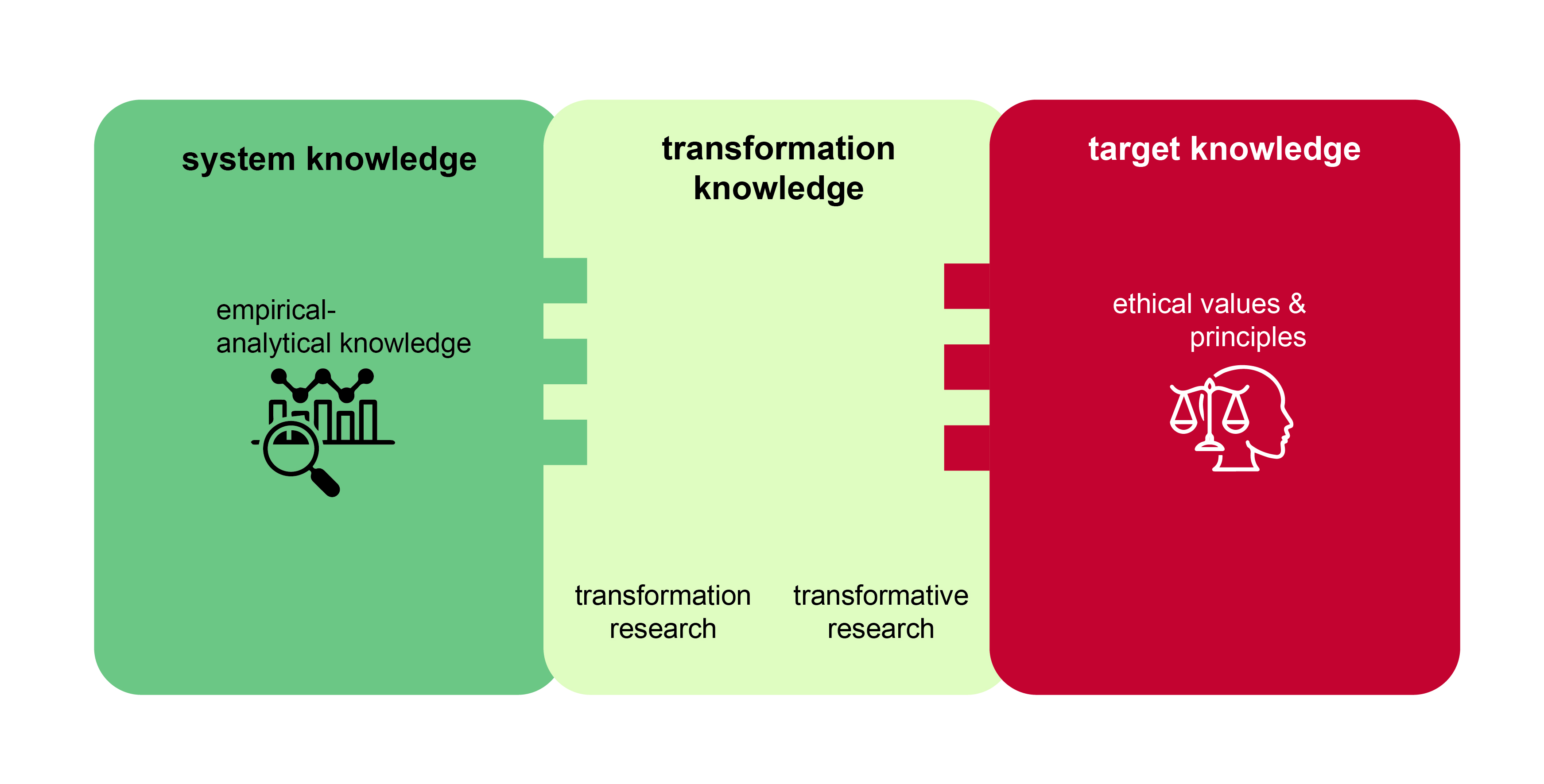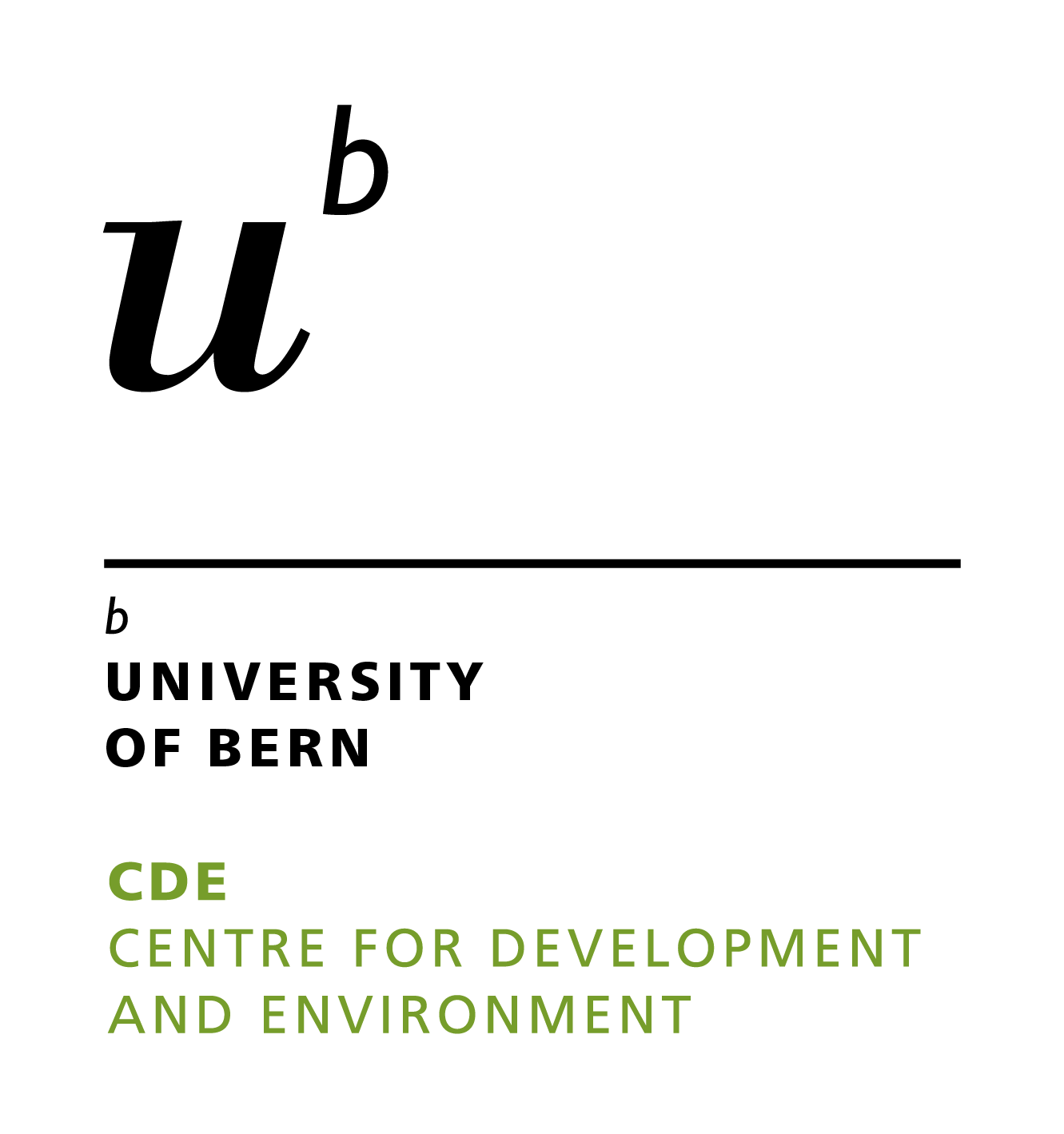3 Three types of knowledge
Learning Outcome
- Students can explain the concepts of systems knowledge, target knowledge, and transformation knowledge within the context of sustainable development
3.1 Three types of Knowledge

Systems knowledge is defined as the comprehension of the existing state of a system, encompassing the investigation of pertinent structures and processes, as well as their intricacy and dynamics within the framework of sustainable development. This is accomplished through a variety of methods, including qualitative and quantitative approaches, mixed methods, experiments, and system dynamics approaches, which frequently incorporate forecasts, retrospectives, and scenario analyses. The majority of studies on the generation of systems knowledge are classified as empirical research (Figure 3.1).
Target knowledge refers to what should be achieved and what should be avoided, and is particularly relevant through normative research. This encompasses the interpretation and concretization of the values associated with sustainable development, as well as the derivation of additional norms. Research that addresses the definition of thresholds, assessment methods, and visioning processes facilitates the formulation of clear recommendations regarding the necessary transformations (Figure 3.1).
Transformation knowledge is the process of moving from the current state to the desired state, achieved through the integration of both system and target knowledge. This entails the pursuit of demonstrably effective solutions to identified problems within the context of sustainable development. There are a number of methods that can be employed to achieve this. (translated from Ilias and enhanced with deepl) Research on transformations, i.e. the change in social organisation at different levels, can be both empirical and normative. Research focussing on past and present transformations is empirical. In contrast, research focussing on how concrete goals can be achieved is normative. This distinction is also acknowledged by the German Advisory Council on Global Change (WBGU), which employs the terms “transformation” or “transformative research.” In the context of transformations, transformative education is emphasised, which aims to promote the acquisition of skills for a comprehensive and multi-layered understanding of change (Schneidewind 2013). The objective is to enhance the capacity for reflection within society, encompassing both the terms and ability of observing and actively shaping transformation processes (Figure 3.1).
